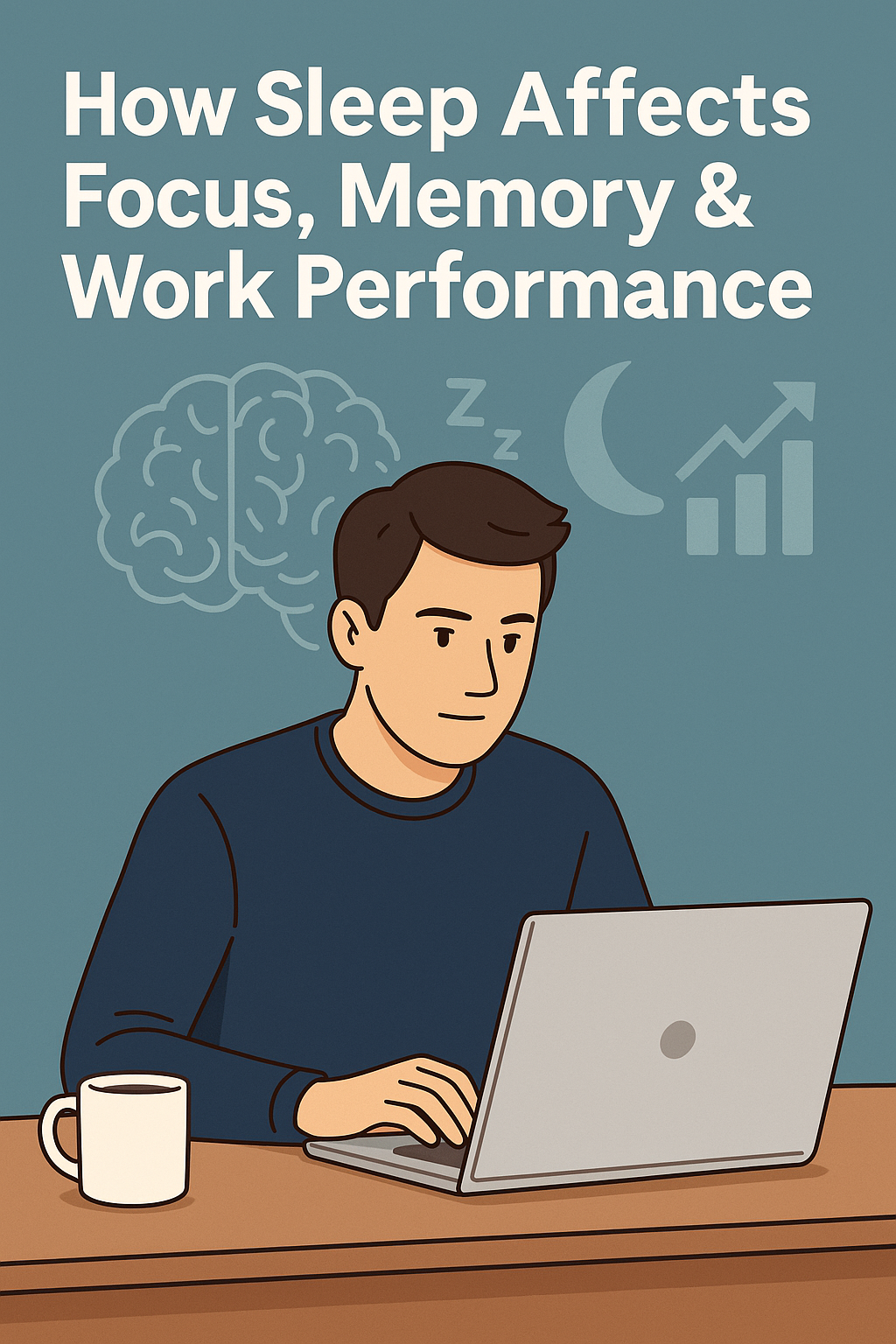In today’s hustle-driven culture, sleep is often sacrificed for productivity. But science says otherwise. Quality sleep is essential for sharp focus, strong memory, and sustained performance — both mentally and physically. Here’s how your brain (and work life) depend on getting proper rest.
Sleep and Focus
When you’re sleep-deprived, your brain struggles to stay alert. Even mild sleep loss can slow reaction times and reduce your ability to concentrate. This makes tasks feel harder, and simple decisions take longer.
Studies show that people who sleep less than 6 hours a night make more mistakes and take longer to complete tasks — even if they “feel fine.”
Sleep and Memory
Memory has three key stages: encoding, consolidation, and recall. Sleep plays a vital role in the **consolidation** phase — when your brain stores and organizes information from the day.
Deep sleep (especially during REM cycles) strengthens neural connections and helps convert short-term memories into long-term knowledge. Without enough sleep, much of what you learn may not stick.
Impact on Decision-Making and Creativity
Sleep loss impairs judgment and problem-solving abilities. Tired brains are more reactive and less strategic, leading to poor choices. Creativity also takes a hit — REM sleep has been linked to insights, innovation, and flexible thinking.
Sleep and Work Productivity
A well-rested employee is more efficient, accurate, and emotionally resilient. On the flip side, chronic sleep deprivation leads to burnout, disengagement, and even physical health problems that affect performance.
How Much Sleep Is Enough?
- Most adults need 7–9 hours per night
- Consistency is key — irregular sleep affects circadian rhythm
- Naps can help, but don’t replace deep nighttime rest
Tips to Improve Brain Performance Through Sleep
- Set a fixed bedtime and wake-up time (even on weekends)
- Avoid caffeine late in the day
- Wind down with a screen-free routine
- Use white noise or sleep gadgets if needed
- Keep your room cool and dark
Conclusion
Better sleep isn’t just about feeling rested — it’s about thinking clearly, remembering more, and performing at your best. If you want to boost your productivity, improve memory, and stay mentally sharp, start by upgrading your sleep habits. Your brain (and your career) will thank you.



